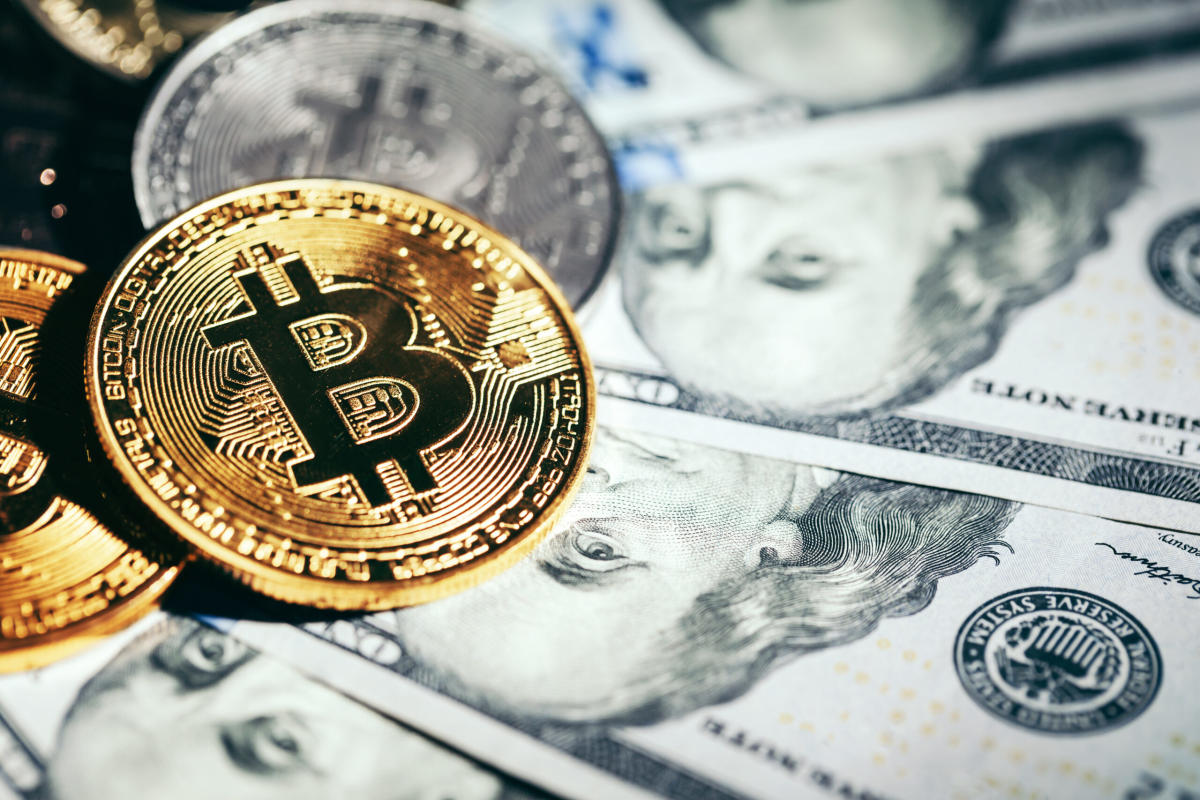Bitcoin Rebounds Quickly: U.S. Inflation Data Shapes Crypto Market

Bitcoin Rebounds Quickly: Bitcoin, the world’s leading cryptocurrency, has been on a rollercoaster ride, experiencing significant fluctuations over the past few months. Recently, Bitcoin has shown a remarkable rebound, driven by new data on U.S. inflation. This resurgence highlights the intricate relationship between macroeconomic indicators and the cryptocurrency market. Let’s explore how U.S. inflation data has played a crucial role in shaping the crypto market and propelling Bitcoin’s recovery US States Take Initial Steps to Create Bitcoin Reserves.
The Influence of U.S. Inflation on Financial Markets
Inflation is a key economic indicator that measures the rate at which the general level of prices for goods and services is rising. The U.S. Federal Reserve (Fed) closely monitors inflation to make informed decisions about monetary policy. When inflation rises, it can erode purchasing power and create uncertainty in financial markets. Conversely, when inflation is under control, it can foster economic stability and growth.
Recent U.S. Inflation Data
Recent reports on U.S. inflation have shown a higher-than-expected increase, causing concern among investors. The Consumer Price Index (CPI), a widely used measure of inflation, indicated that prices had risen significantly over the past year. This surge in inflation has prompted the Fed to consider adjustments to its monetary policy, including potential interest rate hikes.
Bitcoin as a Hedge Against Inflation
Bitcoin is often viewed as a hedge against inflation. Unlike traditional fiat currencies, which can be subject to inflationary pressures, Bitcoin has a fixed supply of 21 million coins. This scarcity makes Bitcoin an attractive store of value for investors looking to protect their wealth from the devaluation of fiat currencies.
As inflation concerns mount, more investors are turning to Bitcoin as a safe haven. The recent U.S. inflation data has intensified these concerns, leading to increased demand for Bitcoin and contributing to its rapid rebound.
Market Sentiment and Bitcoin’s Rebound

Market sentiment plays a significant role in the performance of Bitcoin and other cryptocurrencies. Positive sentiment, driven by factors such as favorable economic data or regulatory developments, can lead to increased investment and price appreciation. On the other hand, negative sentiment can result in sell-offs and price declines. The latest U.S. inflation data has created a sense of urgency among investors to seek assets that can safeguard their wealth. This shift in sentiment has led to a surge in Bitcoin purchases, driving up its price. The quick rebound of Bitcoin underscores its appeal as a hedge against economic uncertainty.
The Role of Institutional Investors
Institutional investors have become increasingly influential in the cryptocurrency market. Their involvement has added a layer of legitimacy and stability to the market. In response to the U.S. inflation data, many institutional investors have ramped up their Bitcoin holdings as part of their strategy to hedge against inflation.
The entry of institutional investors has not only boosted Bitcoin’s price but has also contributed to the overall maturity of the cryptocurrency market. Their participation signifies a growing acceptance of Bitcoin as a mainstream investment asset.
Regulatory Landscape and Its Impact
The regulatory landscape for cryptocurrencies is constantly evolving. Regulatory developments can have a profound impact on market dynamics. In the context of rising inflation, regulators are paying closer attention to cryptocurrencies and their role in the financial system.
The recent rebound of Bitcoin has also brought regulatory considerations to the forefront. Policymakers are exploring ways to integrate cryptocurrencies into the broader financial framework while addressing concerns about market stability and investor protection. The outcome of these regulatory discussions will play a crucial role in shaping the future of the crypto market.
Conclusion
Bitcoin’s quick rebound in response to recent U.S. inflation data highlights the complex interplay between macroeconomic indicators and the cryptocurrency market. As inflation concerns drive investors to seek safe havens, Bitcoin’s appeal as a hedge against economic uncertainty continues to grow. The involvement of institutional investors and evolving regulatory landscape further underscore the significance of Bitcoin in the global financial ecosystem. As the crypto market matures, the relationship between traditional economic indicators and digital assets will become increasingly intertwined.
[sp_easyaccordion id=”4267″]




